
As one of the brightest directors to come out of East-Asia at the turn of the millennium, Bong Joon-ho’s name has experienced a meteoric rise ever since his last movie was released. Parasite made history sweeping some of the most important international awards and becoming the first South Korean film to be honored with the Palme D’Or in Cannes and the Academy Award for Best Picture. His brilliant dissertation on late capitalism shattered cultural barriers, opened the door to millions of audiences to the wonders of foreign cinema and it’s also a good representation of the rest of his oeuvre. His films refuse to fit the narrow parameters of any particular genre and are never afraid of making a clear political and social stance. From subtle satires to dark thrillers, to understand Bong Joon-ho’s work is to forego any hope of labelling it under any conventional style.
Bong’s stories are always dictated by the world around them, more often than not becoming microcosms of our socioeconomic problems and realities. Although his work is drenched in Korean culture, Bong’s success can be attributed to how universal their themes and stories prove to be. And part of the reason his movies are so relatable and accessible is due to the blending influences that have shaped them. From Hitchcock and Sturges to Kurosawa, the South Korean auteur has been inspired by films from all around the globe. And no better way to pay justice to such a cinephile connoisseur than to collect ten of his all-time favorite thrillers in the following list.
1. Burning (2018)
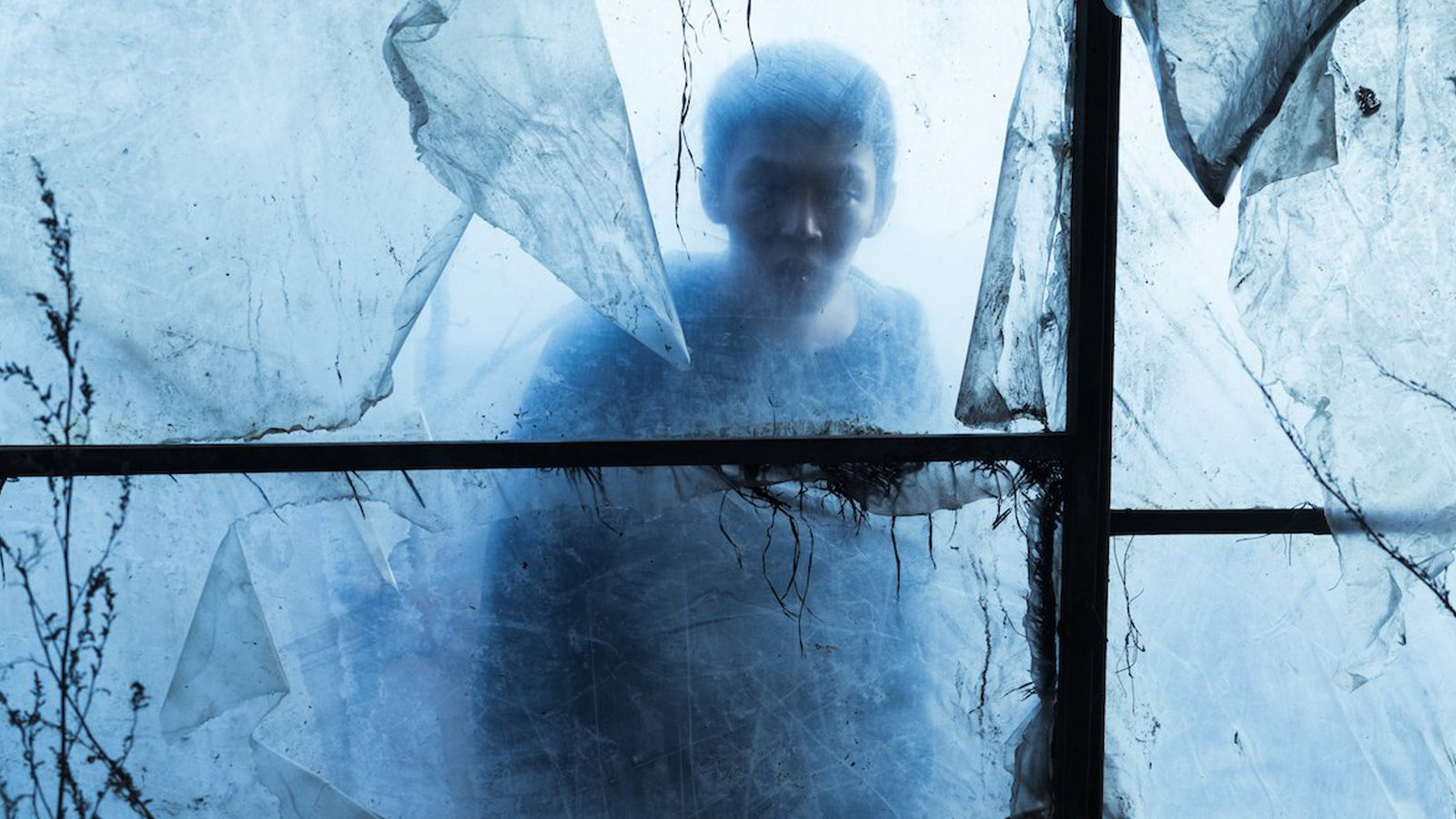
One constant in Bong Joon-ho’s body of work is the socioeconomic themes that underlie beneath his stories. Chances are if you enjoy his incisive commentary you will find this existentialist thriller appealing at the very least. Originally conceived as an adaptation of a short novel by Haruki Murakami, the film tells the cryptic story about a deliveryman who is infatuated with a girl who plans a trip to Africa and returns with an enigmatic new boyfriend. It is directed by the great Lee Chang-dong, one of the most unique voices and brightest talents working today.
Lee’s background as a novelist has never felt as present as in Burning, shrouding the story in mystery and puzzling twists and always raising more questions than answers. Part of what makes the film so hypnotizing beyond the main plot is how Lee leaves ambiguous spots for the audience to fill. The love triangle between its characters establishes a clear social clash. The main character represents the raging and struggling low-class youth with the new boyfriend symbolizing the Westernized upper class who pursues an exotic lifestyle. The girl embodies a cultural bridge between both lifestyles, a deserter among the commoners lured into the glamorous world of her new boyfriend.
2. High and Low (1963)
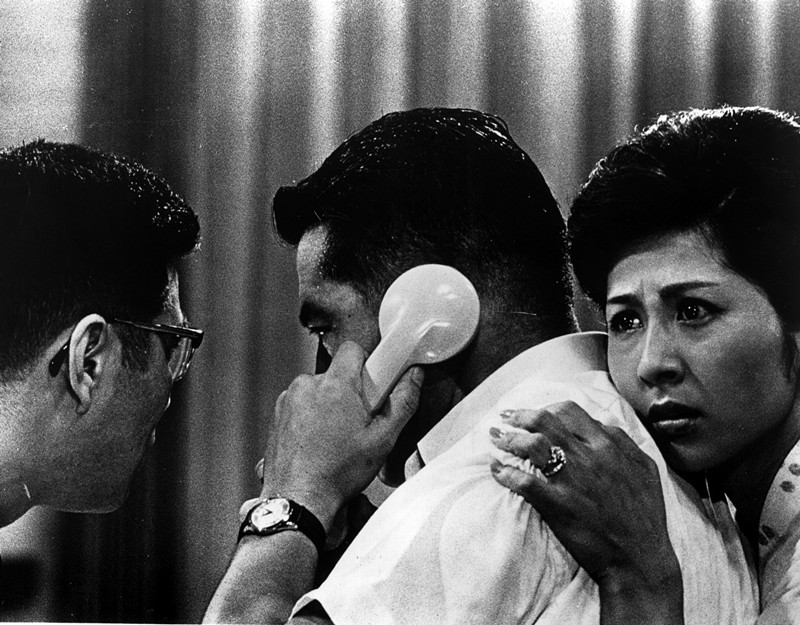
60 years before Parasite was even a thing, Akira Kurosawa turned one of his finest scripts into the epitome of class warfare cinema. The set-up for this film follows the kidnap of a wealthy executive’s son and the hard-boiled negotiations that ensue. The golden irony comes with the fact that the kidnapper mixes up his target, mistakenly capturing the son of the executive’s chauffeur instead. This puts the executive at a crossroads, who up to that point was hellbent on complying with any of the kidnapper’s demands even at the expense of his financial security.
Through this twisted scenario, Kurosawa explores the growing alienation between postwar Japan society, from out-of-touch tycoons to the belligerent proletariat that holds them in contempt. The social ridge between rich and poor is brilliantly symbolized in the literal physical division separating them, with the executive’s luxurious mansion towering from above on the top of a hill and looking down on the poor neighborhood beneath it. If that rings a bell it’s because Parasite replicated that visual allegory by the book. It’s no wonder that Bong has raved about this film, calling it the best to use limited space to convey ideas and his personal favorite from the Japanese master.
3. Zodiac (2007)
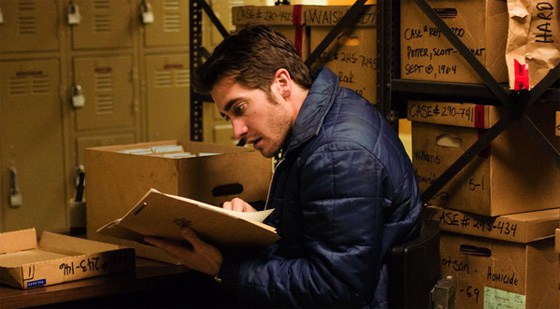
Zodiac is a frenetic and nail-biting thriller based on an unsolved real-life investigation that banks on dreadful atmosphere, nihilist undertones and lack of closure to infuse the viewer with anxiety. This description could also prove to be an apt synopsis for Bong Joon-ho’s own Memories of Murder. And that’s because these two films stand tall above all contemporary thrillers as two eerily similar but equally impressive tales of murder. Zodiac chronicles the investigation of a San Francisco serial killer who was responsible for several macabre deaths and repeatedly taunted police with cryptic letters.
In a similar way to Bong’s Memories of Murder, the film is fixated on the psychological toll and despair that such a helpless pursuit inflicts not only on the task force but on an entire nation. And that narrative approach is why Zodiac is arguably the most captivating of Fincher’s work, a realistic breakdown of the police officer’s growing obsession as they fail to hunt down their target. Bong mentions Fincher’s control of pace, realistic mood and stillness as the aspects that amazes him the most from his quintessential crime classic.
4. Sympathy for Lady Vengeance (2005)
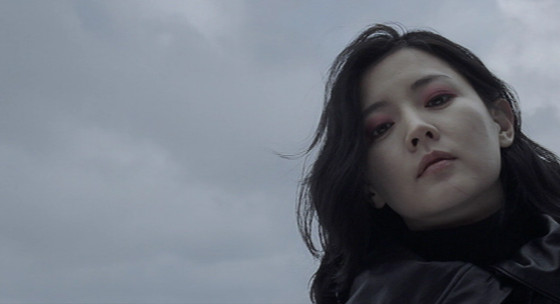
Bong is certainly the most celebrated South Korean filmmaker today, but if there is a man that helped put the country on the map, that is Park Chan-wook. Long before Parasite swept the international awards in 2019, Park’s trilogy of vengeance took the world by storm and gained attention at prestigious international award circuits, with Oldboy becoming an absolute sensation in Cannes. The renaissance of South Korea’s film industry can be pin down to several factors, from the end of state censorship in the 80’s to the establishment of a theater quota that enabled a higher threshold of visibility to its national releases. But above all, Park Chan-wook showed a whole country of talented auteurs a new pathway to be decorated at the biggest stages.
Lady Vengeance is the final entry of the trilogy, telling the story of an abused ex-convict who seeks vengeance upon her wrongdoers. The prominent motif dictates all the film, with our heroine clawing her way to retribution to the elegant tunes of Vivaldi. But ultimately her quest proves to be futile, as she comes to the realization that it does not bring her rewarding closure, but rather a curse almost impossible to evade.
5. Dial M for Murder (1954)
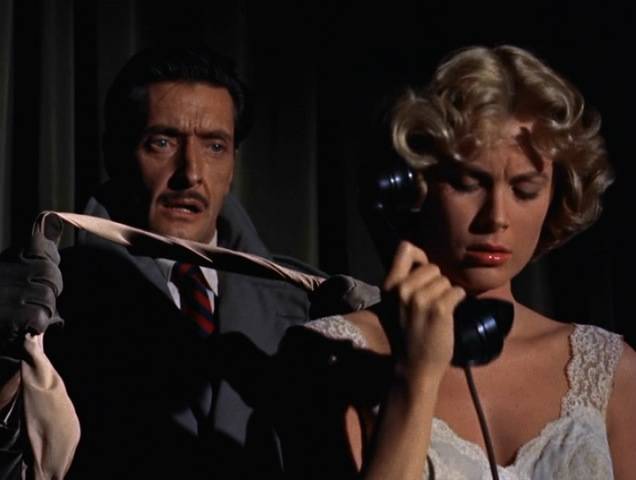
Once asked about some of his favorite filmmakers in the genre, Bong Joon-ho was quick to mention some contemporary talents, from Kiyoshi Kurosawa to Brian De Palma. But he claimed that at the very top of the pyramid there could only be one. And that’s the master of suspense himself, Alfred Hitchcock, who in the year of 1954 managed to drop two of his most acclaimed films. The first was Rear Window, a film that reshaped the way audiences conceived thrillers, and which has gone down in history as one of the most creative whodunits ever.
Dial M for Murder makes up for the other half, once again anchored by the stunning presence of Grace Kelly. And even though the movie didn’t reach the highs of Rear Window in terms of instant iconic status, it has gracefully stood the test of time and has enjoyed a newly found appreciation throughout the decades. The story focuses on a jealous husband plotting an elaborated scheme to kill her wife. The film is bursting with Hitchcock’s razor-sharp suspense, clever plot twists and flawless use of color. It’s easy to see why the South Korean considers himself to be “under Hitchcock’s umbrella”, as his blueprint is unquestionably present in some of Bong’s most intense movies like Mother, Memories of Murder or Parasite.